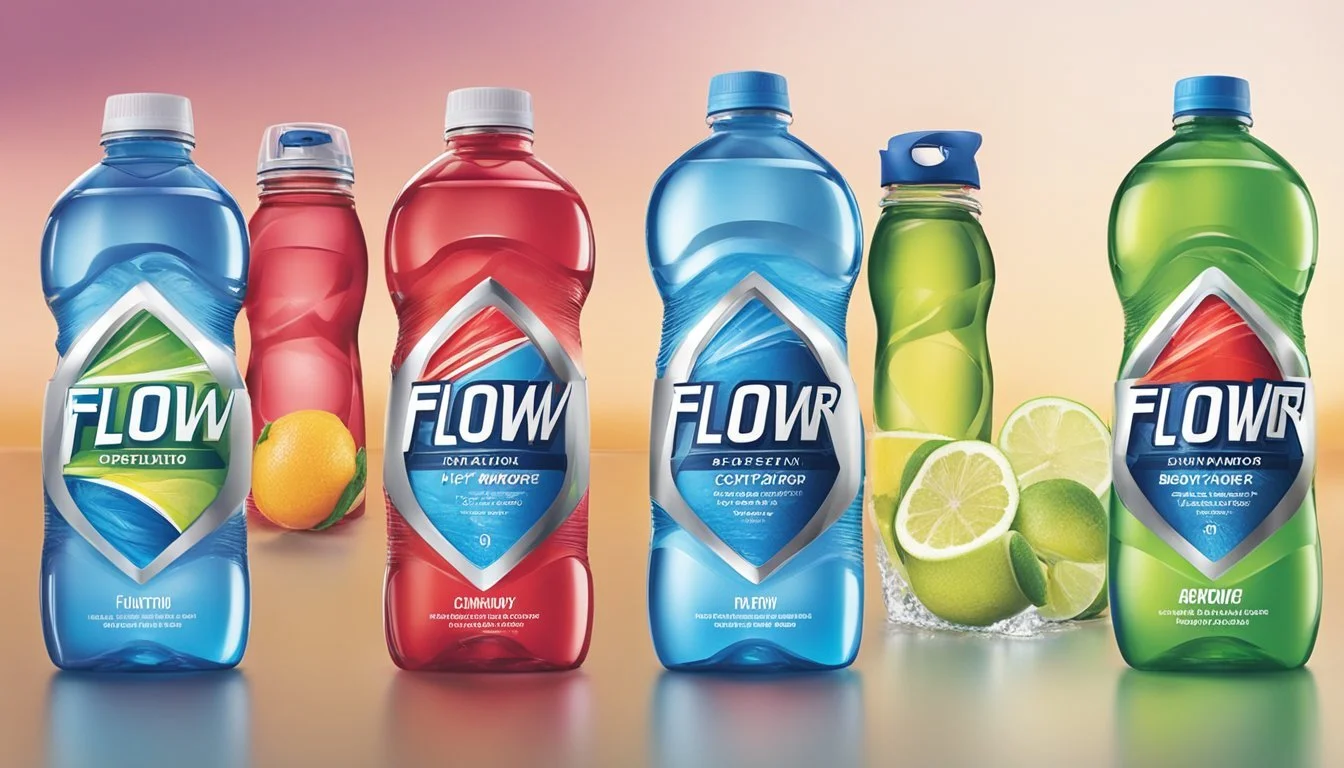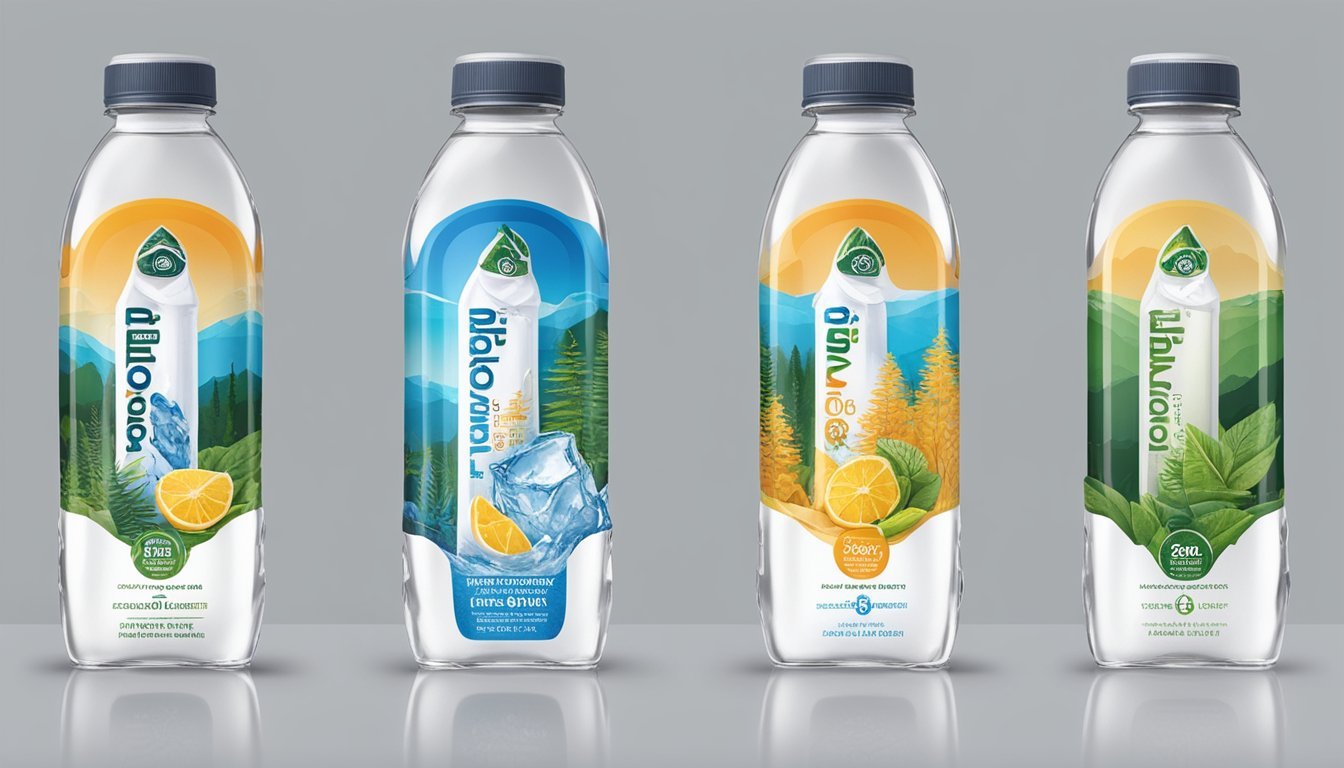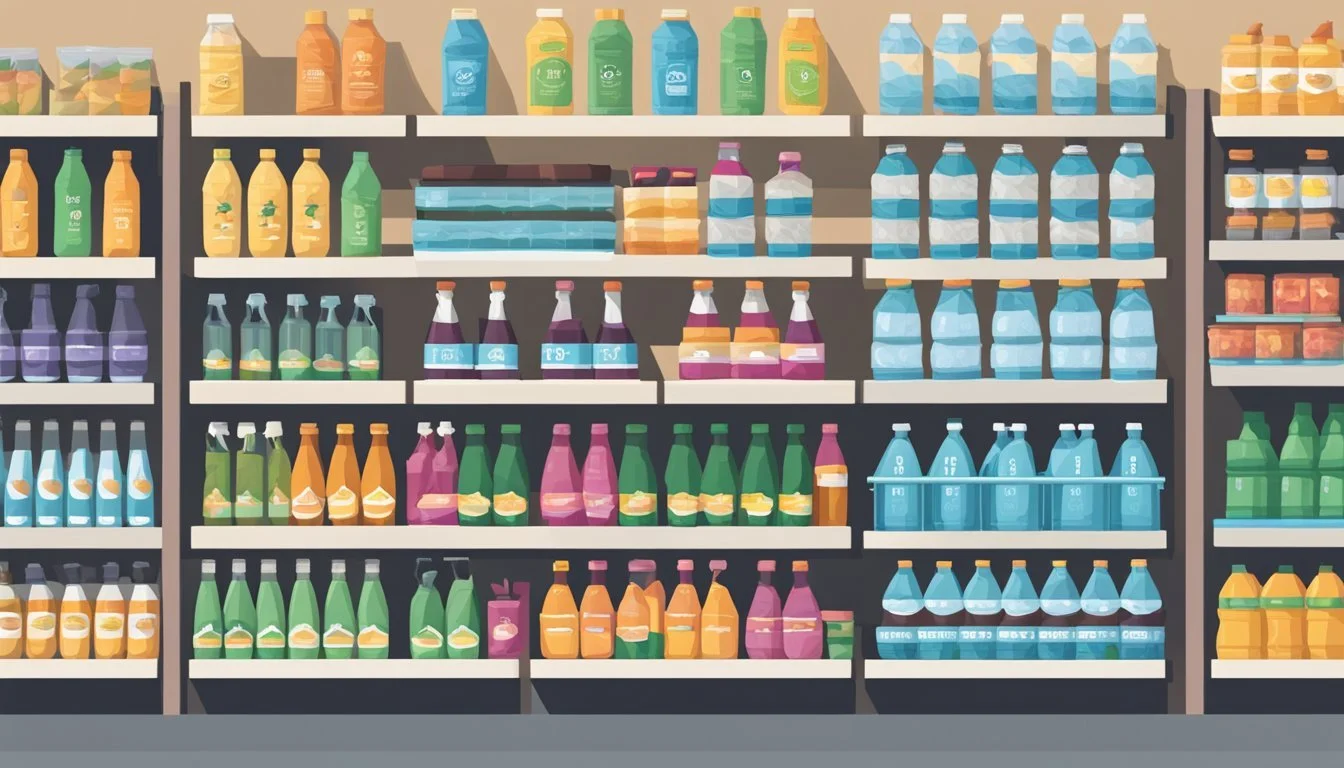Flow vs. BodyArmor
Comparing the Best Bottled Water Brands
When it comes to choosing bottled water, the debate often centers around which brand offers the best combination of taste, health benefits, and overall quality. Two popular contenders in the bottled water market are Flow and BodyArmor. Flow offers a more consistent pH level and a clean taste, making it a preferred choice for many health-conscious consumers.
BodyArmor, on the other hand, is well-regarded for its added electrolytes, which can be particularly beneficial for athletes and those engaging in heavy physical activity. It includes a blend of sodium, potassium, and magnesium, designed to keep you hydrated and boost your performance. Each brand has its unique advantages, making the decision largely dependent on individual needs and preferences.
Understanding the distinct qualities of these two brands can help you make a more informed choice. Whether you prioritize pH balance or electrolyte content, both Flow and BodyArmor have something valuable to offer.
Overview of Bottled Water Brands
Flow and BodyArmor are two well-known bottled water brands, each offering unique features and health benefits. Below, these profiles are examined to help you decide which might be the better choice for your hydration needs.
Profile: Flow Hydration
Flow promotes its water as both organic and sustainably sourced. It comes from an artesian spring and undergoes minimal processing to retain natural minerals. Flow is notable for its alkaline pH of 8.1, which some enthusiasts believe offers better hydration and potential health benefits.
Flow's packaging is made from recyclable, plant-based materials, which aligns with its eco-friendly marketing. These details highlight Flow's commitment to both health and environmental sustainability. The company also adds a touch of electrolytes to enhance water taste and hydration efficiency.
Profile: BodyArmor Hydration
BodyArmor markets its water as high-performance, catering especially to athletes and active individuals. It claims an alkaline pH above 8, aiming to offer superior hydration. Electrolytes are added to boost hydration during intense activities.
Despite marketing itself as alkaline, tests revealed BodyArmor's pH is closer to 7, which is neutral. The water undergoes reverse osmosis filtration, ensuring a low Total Dissolved Solids (TDS) count, resulting in a clean taste. This makes BodyArmor a go-to for those looking for pure, refreshing hydration.
Scientific Comparison of Water Quality
Both Flow and BodyArmor bottled waters offer unique claims regarding their pH levels, electrolyte contents, and mineral enhancements. Below, we examine these facets of water quality to help determine which brand stands out.
pH Levels and Alkalinity
Flow water and BodyArmor both market their products as having high pH levels. Flow boasts a natural alkaline pH of 8.1, sourced from natural springs. In contrast, BodyArmor claims a pH level of 8 or higher, but reviews show it falls closer to 7 based on independent testing.
An alkaline pH can help to neutralize body acidity, potentially reducing acid reflux and boosting overall hydration. Consumers preferring higher alkalinity might lean toward Flow, which reliably maintains its pH level.
Electrolyte Content Analysis
Electrolytes are vital for hydration, muscle function, and nerve signaling. Flow water naturally contains electrolytes like calcium, magnesium, and potassium. These minerals are essential yet balanced to avoid overwhelming the taste.
BodyArmor enriches its water with added electrolytes, claiming to include magnesium chloride, calcium chloride, and potassium bicarbonate. This enhancement aims to provide a sharper taste and better hydration. Based on the product content, those needing immediate electrolyte replenishment might find BodyArmor more beneficial.
Mineral Enrichment and Health Implications
The mineral content of bottled water can significantly affect health. Flow is known for its natural mineral content, including magnesium and calcium, which support bone health and muscle function. This natural mineral blend also contributes to its smooth taste.
BodyArmor, on the other hand, enriches its water with minerals like magnesium chloride and calcium chloride. These added minerals are crucial for bone density and cellular processes. However, the balance between naturally occurring and added minerals might sway consumer preference.
In summary, both brands offer distinct approaches to water quality, focusing on pH balance, electrolyte content, and mineral enrichment to cater to different health needs.
Health Benefits and Hydration
When comparing Flow and BodyArmor bottled water, several key factors must be examined to determine which is more beneficial. These include hydration effectiveness, influence on blood pressure and sugar, and their applications for athletes and physical activities.
Effectiveness for Hydration
Flow offers alkaline spring water with naturally occurring electrolytes. Alkaline water supporters suggest it helps to neutralize acid in the bloodstream and improve hydration levels.
BodyArmor’s SportWater, designed to have a pH level greater than 9, incorporates reverse osmosis water and added electrolytes, primarily to enhance hydration. While BodyArmor’s advertised pH claims may not always be met, its electrolyte content aims to boost hydration efficiency during exercise and recovery.
Influence on Blood Pressure and Sugar
Alkaline water, featured in Flow, may offer benefits such as reduced acid reflux and better overall hydration, potentially aiding in the management of blood pressure by maintaining adequate fluid balance.
BodyArmor’s electrolyte-infused water supports hydration, which can indirectly influence blood pressure regulation. It lacks sugars, reducing the risk of spikes in blood glucose levels, making it a suitable option for those monitoring their blood sugar. This aspect positions BodyArmor as a potentially healthier choice in managing health metrics related to blood pressure and blood sugar.
Applications for Athletes and Physical Activities
Flow’s alkaline properties and natural minerals cater to daily hydration needs but may not provide the specific electrolyte balance required for intense physical activity. It suits those who engage in light to moderate exercise, offering refreshing hydration with beneficial minerals.
BodyArmor stands out for athletes and those engaged in strenuous activities due to its higher electrolyte content. The added minerals and electrolytes help maintain optimal hydration and support recovery. Additionally, BodyArmor’s products often include vitamins and options with caffeine for those seeking a performance boost during athletic endeavors.
These factors underline the importance of choosing a hydration product that matches the intensity and requirements of one's physical activities.
Packaging and Environmental Considerations
The packaging and environmental aspects of Flow and BodyArmor really set them apart. By examining recyclability and BPA content, as well as the environmental impact and production, we gain a clear understanding of their strengths and weaknesses.
Recyclability and BPA Content
Flow water bottles are 100% recyclable and free from BPA (Bisphenol A). Their packaging features Tetra Pak cartons, which are primarily made from renewable resources like paperboard. This material makes Flow packaging easier to recycle, as it's designed to be lightweight and efficient.
BodyArmor uses PET plastic for their bottles, which is also recyclable. However, recycling rates for PET are often lower compared to materials like glass or aluminum. BodyArmor bottles are labeled as BPA-free, which makes them safer for consumption over long periods. The use of PET, though, requires more resources for recycling.
Environmental Impact and Production
Flow water aims for a reduced environmental footprint. Their packaging production focuses on renewable resources and minimizing carbon emissions. According to industry assessments, Tetra Pak cartons produce fewer greenhouse gases compared to traditional plastic bottles. Flow’s manufacturing processes include sustainability initiatives that strive to lower their overall environmental impact.
BodyArmor, while making strides in packaging, still relies on PET plastic, which has a higher carbon footprint in its production phase. The energy consumption and resources needed for PET production are significant, contributing to a larger environmental toll. BodyArmor's recent efforts include increasing the proportion of recycled PET, though these measures are still evolving to make a more meaningful impact on sustainability.
Taste and Sensory Experience
When comparing Flow and BodyArmor bottled water, it's essential to look closely at their flavor profiles and how they are perceived by consumers during taste tests and reviews.
Flavor Profiles
Flow is known for its subtle and smooth taste. It has a naturally alkaline pH of 8.1, which many consumers find to be refreshing. Flow's unique mineral content imparts a clean, crisp taste that stands out among other bottled waters.
BodyArmor offers various flavored water options, such as Orange Mango and Pineapple Coconut. These flavored variants provide a burst of fruity taste while still delivering hydration. However, their unflavored option has a pH level reportedly around 7, which is neutral. Consumers appreciate the slight sweetness and lack of aftertaste in BodyArmor's unflavored variety.
Consumer Taste Tests and Reviews
In taste tests, Flow often ranks highly for its pure and unaltered taste. Many reviewers have noted its pleasant mineral aftertaste and overall smoothness. Its eco-friendly packaging also adds to its appeal for many users.
BodyArmor's flavoured options like Orange Mango and Pineapple Coconut are praised for their natural taste and ability to mask any harsh mineral flavors. The Orange Mango flavor, in particular, is highlighted for its balanced sweetness and refreshing quality.
For unflavored choices, BodyArmor's pH level of around 7 is sometimes seen as disappointing compared to its advertised higher pH levels. Despite this, some consumers appreciate its clean and neutral taste.
Market Value and Product Accessibility
The bottled water market is a rapidly growing sector with brands like Flow and BodyArmor competing for space. Understanding their market value and product accessibility can help consumers make informed choices.
Comparing Prices and Sizes
When it comes to value, BodyArmor targets the premium segment with enhanced water options including electrolytes. Prices reflect this, typically $1.50 to $2.00 for a 16 oz bottle. Flow’s prices, focused on natural alkaline water, range from $1.00 to $1.80 for a similar size.
Consumer preferences for size variety are crucial. BodyArmor offers bottle sizes from 12 oz to 33.8 oz, catering to different hydration needs. Flow provides options from 16.9 oz to 1 liter. This sizing flexibility plays a significant role in purchase decisions based on individual consumption patterns.
Availability for On-the-Go Consumption
Accessibility for on-the-go consumption is critical. BodyArmor benefits from Coca-Cola's distribution network, ensuring widespread availability in major retailers, supermarkets, and convenience stores across the United States.
Flow has a robust online presence and can be found in health-oriented stores and larger retail chains. Both brands also offer subscription services for home delivery, expanding convenience for the consumer. The presence in vending machines and at sporting events further increases their on-the-go reach.
Their efforts to ensure availability make these brands accessible choices for busy lifestyles.
Final Recommendations and Summary
Hydration and Health Benefits
Flow and BodyArmor both prioritize hydration and wellness. BodyArmor Sport Water provides a blend of electrolytes, including sodium, potassium, and magnesium, aiding hydration especially during and after exercise. Flow's mineral-rich spring water also supports overall wellness, with essential minerals that contribute to hydration.
Athletic Performance
For athletic performance, BodyArmor's added electrolytes can be more beneficial. The electrolytes help maintain the balance of fluids in the body, which is crucial for athletes. Flow, while hydrating, does not specifically target athletic enhancement.
Taste and Ingredients
BodyArmor offers a clean taste with real fruit juice and natural flavors, which some may find appealing. Flow is known for its crisp taste from natural spring water without additional flavors. Taste preferences will vary, but both brands provide a satisfactory experience without the plastic taste found in some bottled waters.
Value and Pricing
When considering value, Flow tends to offer competitive pricing, especially for bulk purchases. BodyArmor may be slightly more expensive due to its enhanced ingredients, but the cost is justified for those seeking the added benefits of electrolytes.
Recommendations
For Athletes: BodyArmor is recommended for its electrolyte content.
For Daily Hydration: Flow is recommended for its pure taste and mineral content.
For Flavor Preferences: BodyArmor with its natural flavors.
For Budget: Flow often offers better pricing options.
In choosing between Flow and BodyArmor, consider what aspects matter most for individual needs, whether it's athletic performance, everyday hydration, or flavor preferences. Each has its strengths, making either a solid choice depending on personal priorities.
More About Flow
Flow vs Whole Foods Italian Still Mineral water: Which Bottled Water is Better?
Mountain Valley Spring Water vs Flow: Which Bottled Water is Better?
More About BodyArmor
BodyArmor vs Kirkland Signature: Which Bottled Water is Better?
Cascade Mountain vs BodyArmor: Which Bottled Water is Better?
Hawaii Volcanic vs BodyArmor: Which Bottled Water is Better?
Hawaiian Springs vs BodyArmor: Which Bottled Water is Better?
Icelandic Glacial vs BodyArmor: Which Bottled Water is Better?
Mountain Valley Spring Water vs BodyArmor: Which Bottled Water is Better?
Nestle Pure Life vs BodyArmor: Which Bottled Water is Better?
Richard's Rainwater vs BodyArmor: Which Bottled Water is Better?
Solan de Cabras vs BodyArmor: Which Bottled Water is Better?
Talking Rain AQA vs BodyArmor: Which Bottled Water is Better?
Whole Foods 365 vs BodyArmor: Which Bottled Water is Better?
Whole Foods Italian Still Mineral water vs BodyArmor: Which Bottled Water is Better?





